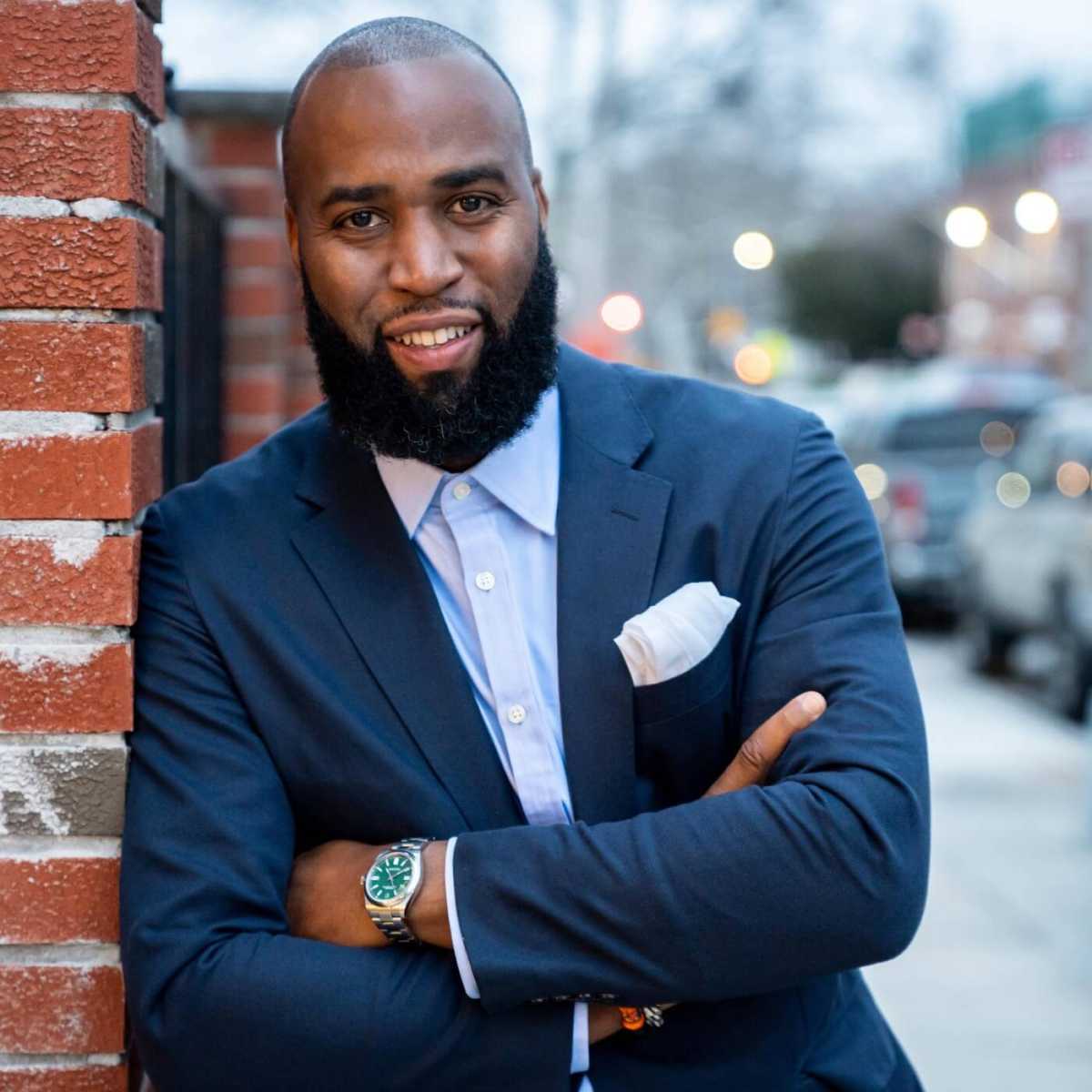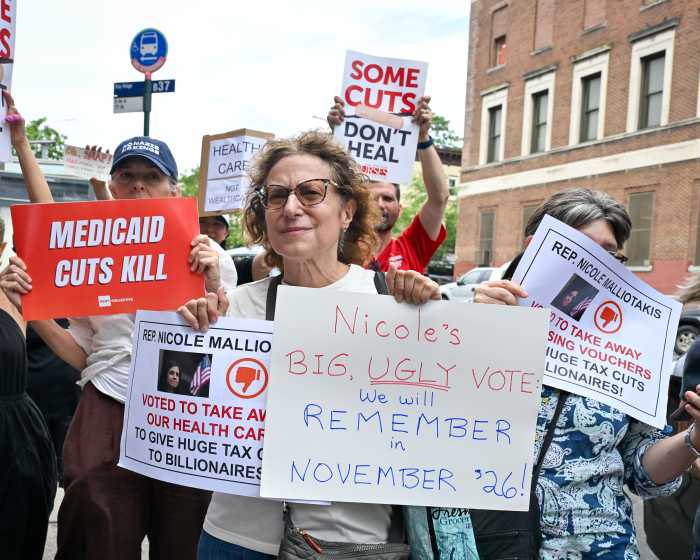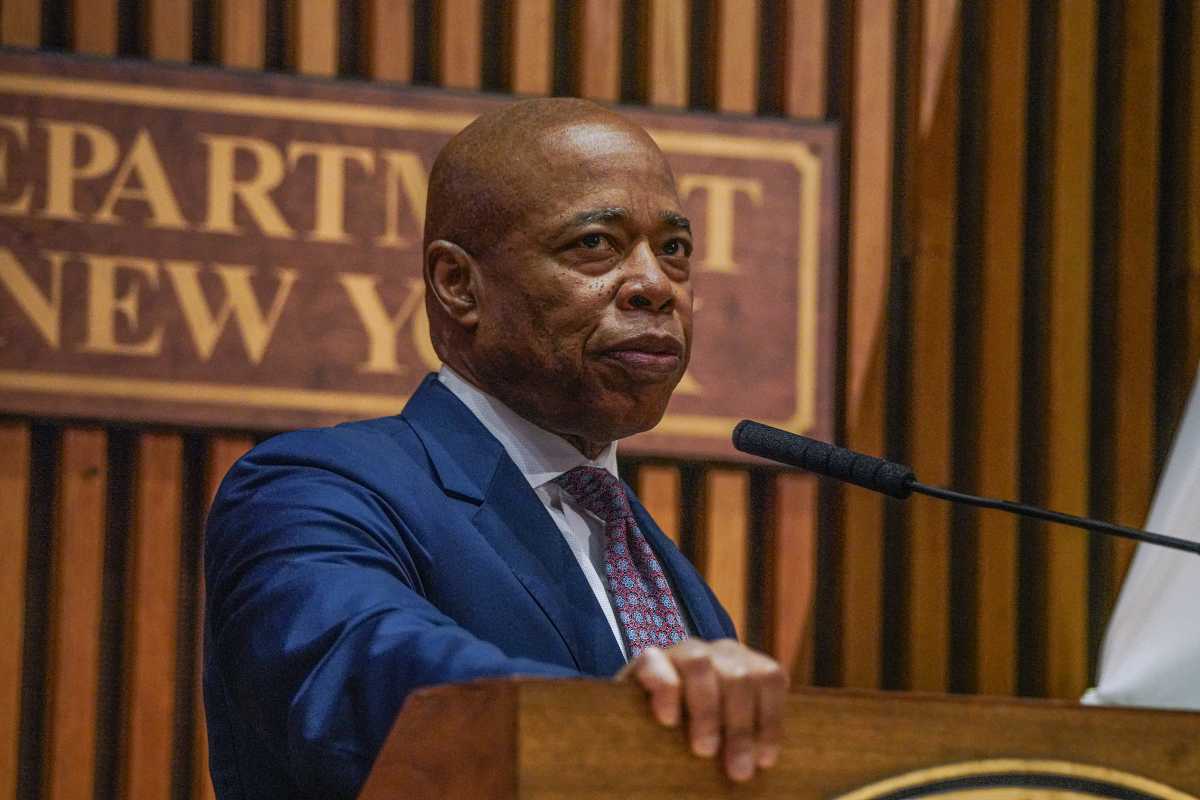Democrat Brian Cunningham won the special election for State Assembly in Central Brooklyn’s 43rd District Tuesday night, trouncing Working Families Party nominee Jelanie DeShong by nearly 30 points, and delivering victory to the Brooklyn Democratic Party for the second time this year against insurgents backed by the progressive WFP.
With over 98 percent of scanners counted according to the city Board of Elections, Cunningham holds a substantial lead with 62.28 percent of votes compared to DeShong’s 34.52 percent. Republican and Conservative Party nominee Mesidor Azor has 2.93 percent, while 0.27 percent of votes went to write-in candidates.
The 43rd District is composed of Prospect Lefferts Gardens and parts of Crown Heights and Flatbush.
“I’m honored that the people of District 43 have selected me to serve them in Albany,” Cunningham said in a statement. “I’m ready to wake up tomorrow and get to work on all of the progressive issues we need to move forward. We have a lot to do to improve our communities and I don’t want to waste a single second.”
Cunningham will take office after the BOE certifies the election results. He will succeed Diana Richardson, who had served since 2015 but resigned earlier this year to take a job as a Deputy Borough President under new Beep Antonio Reynoso. The new Assemblymember will finish out the year until Richardson’s term expires, and will still have to run in the June primary and November general election.
Cunningham’s election victory comes as Albany lawmakers scramble to reach a deal on a $216 billion state budget, which is due on April 1.
The Assemblymember-elect has been a fixture of area politics for several years, having previously worked for State Sen. Kevin Parker and former Councilmember (and now Cultural Affairs Commissioner) Laurie Cumbo before unsuccessfully challenging Mathieu Eugene for the 40th Council District seat in 2017. Since then, he has worked a number of jobs, most recently as Director of Operations at the National Institute for Criminal Justice Reform.
Cunningham secured the support of the county Democratic machine last month, winning a substantial majority of County Committee members’ votes against four other candidates, including DeShong. Cunningham had the backing of Parker, Councilmember Rita Joseph, county Democratic boss Rodneyse Bichotte Hermelyn.
The latter’s support essentially ensured the Democratic nomination, as the majority of County Committee votes were claimed as “proxies” by the area’s two District Leaders, both allies of the chair, though Cunningham proclaimed support from both the party establishment and reformers. DeShong, meanwhile, was backed by Richardson, State Sen. Zellnor Myrie, US Rep. Yvette Clarke, and Borough President Reynoso.
Bichotte Hermelyn, herself an assemblymember representing Flatbush, said she is excited to serve in Albany with her newest colleague.
“I look forward to seeing Brian Cunningham in the Chamber, where he will undoubtedly leave his mark in the halls of Albany, as he has in the streets of Brooklyn,” Bichotte Hermelyn said in a statement. “Brian’s victory shows the Democratic Party is putting the community first, and that divisiveness in this district is a thing of the past. Democrats are blazing the way forward. I thank the District Leaders and grassroots activists who helped make this victory a reality. Cunningham brings an incredible energy to this district that will benefit the people he will soon represent.”
The WFP nominated DeShong soon after he lost the Democratic nomination, pitting a candidate of its own against the one with the Democratic ballot line (which typically confers an overwhelming advantage to its holder) for the second time this year in a Brooklyn special election; the WFP had previously nominated Keron Alleyne to run against Democratic Nikki Lucas in East New York’s 60th Assembly District, but Alleyne lost that race by a resounding 60 points.
DeShong previously argued that the 43rd was likely friendlier territory to the WFP than the 60th, a point not without merit, as Richardson herself had first been elected solely on the WFP line, one of only two people in Brooklyn history to do so. And while he didn’t come particularly close to winning, he still did markedly better on the WFP line in central Brooklyn than had Alleyne in eastern Kings County.
Although the race became a proxy battle of sorts between the Brooklyn Democratic machine and progressive area electeds, the two candidates remained cordial with one another.
We’d be proud to have either of these young men as our next Assemblymember. Thanks to @zellnor4ny & @RitaJosephNYC for keeping it 💯 and modeling what politics can look like. https://t.co/mnZtVBwCcP pic.twitter.com/jupmjUXrIh
— PLGNA (@PLGNAnyc) March 23, 2022
With the June 28 primary election just three months away, DeShong made clear in a Tuesday night statement that he still intended to seek the Democratic nomination for the November general.
“The first lap of the race for the 43rd Assembly District has been run & I couldn’t be prouder of the friends, family & supporters who put in work on this campaign,” DeShong tweeted. “Sincere congratulations to [Brian Cunningham] on tonight’s win. Get some rest, my brother — the marathon continues!”
Two other candidates who unsuccessfully contested the Democratic nomination for the special election, Tim Hunter and Pierre Albert, have also declared their intentions to contest the June primary.
In typical special election fashion, turnout was extremely low: only 3,001 votes have been counted with 99 percent of scanners reporting. The district has 94,836 enrolled voters, according to state Board of Elections statistics, translating to turnout of about 3.2 percent, slightly below the 3.8 percent turnout in the 60th District last month. Official turnout rates won’t be known until the city BOE certifies the election results.
Cunningham did not immediately respond to a request for additional comment.
























